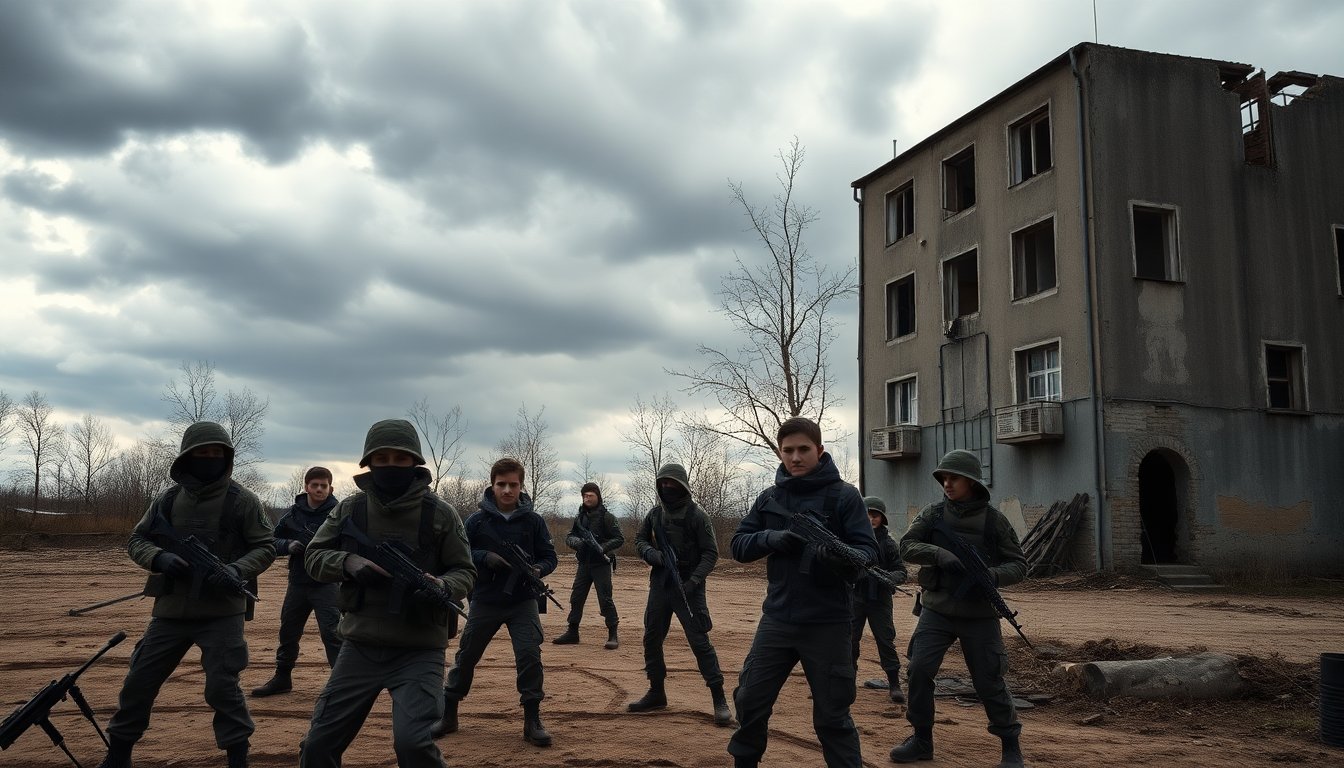Table of Contents
In recent years, a troubling trend has emerged in Russia, where numerous orphans are being recruited to fight in the ongoing conflict in Ukraine. This alarming phenomenon is primarily fueled by the enticing promise of stable housing, a necessity that many of these young individuals have long been denied. The grim statistics reveal a staggering number of casualties among these vulnerable youths, leaving behind a trail of grief and unanswered questions.
Reports indicate that approximately 190 obituaries for orphans who have lost their lives in combat have been documented over the past three and a half years. Through conversations with acquaintances and relatives of these young men, insights into their motivations and circumstances have begun to surface.
The heartbreaking journey of Danil Trubeyev
Take, for example, the story of Danil Trubeyev, a 20-year-old from Miass, a city in the Chelyabinsk region. Danil’s life was tragically cut short when he was killed in the Ukraine war. He had been captured in October of the previous year and, after a prisoner exchange, returned home in April 2025. Unfortunately, his return was short-lived, as his commanders denied him leave, and within months he was back on the front lines, ultimately meeting his demise.
Factors influencing enlistment
When probing the reasons behind Danil’s decision to enlist, those close to him highlighted a common theme: his status as an orphan. The challenges these young people face, especially regarding housing instability, are intensified by the environment of the orphanages where they often reside. One of Danil’s teachers noted, “They are constantly influenced by a lack of critical thinking skills; their survival skills are limited to basic day-to-day needs. They only learn to navigate the world when they turn 18 and leave the orphanage.”
Relatives of Danil express their regret for not being able to take him in after his mother passed away by suicide. His father chose not to include him in his new family, forcing Danil into the orphanage system. A family member recalled him as a gentle child, but the lack of support and understanding left him vulnerable.
The false promises of military service
Danil’s story is not an isolated incident; it reflects a broader pattern among orphans who enlist in the military. Despite having completed vocational training in car repair, Danil struggled to secure stable employment. When an opportunity arose to sign a contract as a mechanic, he was misled into believing he would not be directly involved in combat. His reasoning was straightforward: “They said I’d work at headquarters, and I’d get fed. Later, I could buy an apartment.”
This tragic misunderstanding ultimately led him to the front lines, where he faced the horrors of war. After being captured, Danil promised his family he would never return to the battlefield. However, the harsh realities of military life took over, and he was placed back into the fray, leading to his death in.
Recruitment tactics and incentives
Recruitment efforts for orphans have intensified since, when the Russian government introduced a policy that prioritizes housing access for those who enlist in the Ukraine conflict. This initiative has been exploited by regional authorities, who use the allure of immediate housing to entice young adults into military contracts. Unfortunately, many of these individuals do not survive long enough to benefit from these promises.
Staff at orphanages have reported that thousands of former wards of the state have likely perished in the war, with many institutions aware of at least ten enlistees from their facilities. However, the true number may be much higher as many do not maintain contact after leaving care. The tragic irony is that these orphans are already entitled to housing, yet the promise of military service has become their only perceived path to achieving that basic need.
Wider implications and future prospects
The situation is compounded by the ongoing housing crisis faced by orphan graduates. As of September, over 184,000 individuals remain on a waiting list for government housing, often left in dire living conditions. Some even have court orders entitling them to apartments that are never delivered. This neglect raises profound ethical questions about the treatment of orphans in Russia.
Many voices within Russian society, including former orphans, have condemned the policy that prioritizes enlistees for housing over those who have already been waiting for years. The sentiment is clear: these young people are being exploited for their desperation and vulnerability, rather than being afforded the support they rightfully deserve.


